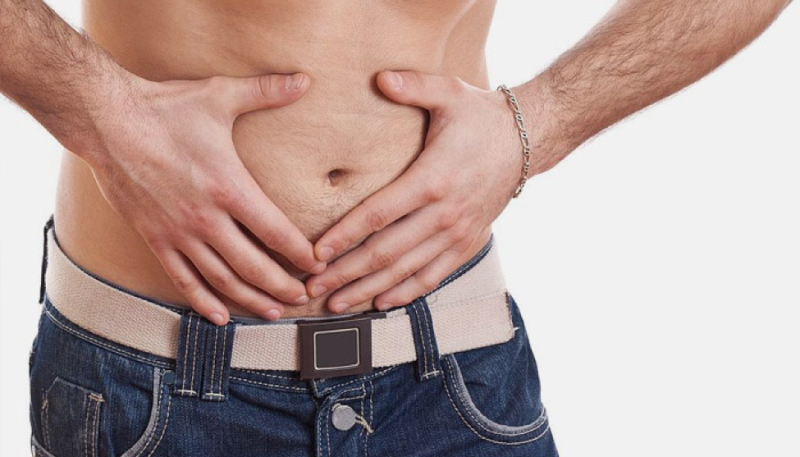
Those who know that they are prone to specific health problems (glucose or high cholesterol, for example) often have some concerns. For this reason, we will now focus on the symptoms of high cholesterol.
Cholesterol is a waxy substance present in blood fats. Although many only know it for its harmful effects on health, it is essential for the optimal functioning of the body.
This is a substance necessary for forming bile acids, which, in turn, are responsible for the digestion of fats. On the other hand, cholesterol is involved in producing some hormones and cardiovascular health.
Contents
What else should you know about cholesterol?
The liver is responsible for segregating most of the cholesterol, although it is also absorbed by consuming some foods that contain it. The problem is that, although several organs need it, its excessive accumulation in the blood vessels causes irreparable damage and could become a severe problem.
Surely you have heard of several types of cholesterol, and it is true. They are known as “good” or “bad” cholesterol and refer to HDL and LDL cholesterol. The first (good) comprises high-density lipoprotein, and the second (bad) is low-density.
Both have referential values that allow an evaluation of the person’s state of health. As of today, these are the established values :
- Total cholesterol: below 200 milligrams per deciliter. It is set as high as 240.
- HDL cholesterol: 35 milligrams per deciliter in men and 40 milligrams per deciliter in women is correct.
- LDL cholesterol: the average value is less than 100 milligrams per deciliter. However, the desirable value could be lower in some cases.
The most worrying thing is that many people are unaware that they have it in high amounts since, in general, it does not manifest itself through solid symptoms.
This leads to more serious health disorders such as arteriosclerosis, hypertension, and kidney failure. Due to this, it is essential to know some signs that could be decisive for its detection.
1. Swelling and numbness of the extremities

Swelling and numbness in the extremities are initial symptoms of high cholesterol. This reaction occurs because the accumulated lipids prevent optimal circulation, thus reducing the flow of oxygen and nutrients to the muscles.
2. Halitosis
Bad breath or halitosis is a ubiquitous sign in patients with cholesterol problems. Since this substance is secreted in the liver, its excessive accumulation hinders digestion, which manifests in dryness and unpleasant odors in the mouth.
3. Heaviness and indigestion
 Excess lipids in the blood and liver affect metabolism and prevent the development of the digestive process regularly, especially when eating foods with high-fat content. For this reason, high levels of bad cholesterol (LDL) and total cholesterol usually lead to continuous episodes of indigestion and heaviness.
Excess lipids in the blood and liver affect metabolism and prevent the development of the digestive process regularly, especially when eating foods with high-fat content. For this reason, high levels of bad cholesterol (LDL) and total cholesterol usually lead to continuous episodes of indigestion and heaviness.
4. Dizziness and headaches can be symptoms of high cholesterol
As cholesterol deposits in the arteries, circulation is increasingly affected, and cellular oxygenation is interrupted. This is manifested by continual dizziness, loss of balance, and severe tension headaches.
5. Visual problems
It is common for patients with high LDL cholesterol levels to have a yellow lump in the eyes, irritation, and blurred vision.
6. Constipation
The accumulation of lipids in the arteries affects the digestive process. In other words, since intestinal motility decreases, episodes of constipation may appear.
7. Chest pain
 Chest pain is a very easy symptom to identify.
Chest pain is a very easy symptom to identify.
8. Weakness and fatigue
The feeling of weakness, fatigue, and the desire to sleep, at unusual hours and continuously is usually derived from nutritional deficiencies, excessive physical activity, illness, or high cholesterol levels.
9. Skin conditions
Skin conditions such as hives and others can also be included in the symptoms of high cholesterol. Often, they manifest through reddish spots, inflammation, and an uncomfortable itching sensation that is often difficult to control.
One of the skin problems associated with high cholesterol levels is eruptive xanthomatosis. It manifests as small red or yellow bumps that can appear on the face, neck, abdomen, knees, or back. They are harmless but often cause irritation and itching.
10. More symptoms of high cholesterol: stones in the gallbladder
Cholesterol plays a vital role in bile secretion, which helps digest fat and break down food. But when it is too concentrated, it can turn into crystals and hard stones that remain in the gallbladder.
For this reason, the appearance of gallstones could be a sign of high cholesterol. However, it must be considered that there are other determining factors and origins of this problem.
11. Erectile dysfunction
In men, high cholesterol can interfere with normal sexual function. The accumulation of these lipids in the blood vessels worsens the passage of blood, also the one that goes to the sexual organs. And consequently, the erectile function can be affected.
Guidelines to prevent high cholesterol
Having high cholesterol can be due to several reasons. We generally associate it with a bad diet, but there are several causes, some of which cannot be modified.
- Genetic composition.
- Existence of previous pathologies: kidney disease, diabetes, hypothyroidism, among others.
- I was taking medication.
- Physical inactivity.
- Eating habits.
In some cases, it can be difficult to avoid and control hypercholesterolemia. But some guidelines can help keep cholesterol levels at the proper levels. Most of them focus on maintaining healthy lifestyle habits.
These focus on exercising daily, avoiding alcohol and tobacco, reducing stress, and maintaining a healthy weight. In addition, vegetables, fruits, whole grains, and healthy fats should predominate in the diet.
Pay attention to the possible symptoms of high cholesterol
Although cholesterol is a necessary substance for the body, its excessive accumulation can cause serious health problems. Most of them are related to the cardiovascular system.
This is usually a common affectation, but it only gives clear signs when it is already in a very advanced phase. Although there are some signs or symptoms that could be related to elevated lipids and that could lead to suspicion of this problem.
However, remember that all the signs or ‘symptoms’ mentioned in the article may have other causes. They do not always indicate high cholesterol levels, so it is best to consult a doctor. The professional will carry out a physical evaluation and, if considered so, will request the respective tests to detect the origin of any alteration or anomaly.
In addition, as most experts point out, screening tests for high blood cholesterol should be done periodically. This is one of the best ways to control its evolution.